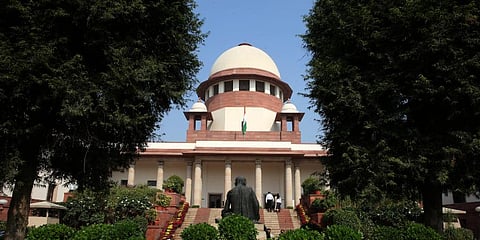

NEW DELHI: Petitioners challenging the 10% reservation granted to the Economically Weaker Sections (EWS) for admission to central government and private educational institutions and recruitment in central government jobs on Tuesday told the SC that the amendment damages the heart of the Constitution which is equality.
The submission was made before a 5 judge bench comprising CJI UU Lalit, Justices Dinesh Maheshwari, SR Bhat, Bela Trivedi & JB Pardiwala in 39 pleas lead one filed by Janhit Abhiyan that challenged the 103rd Constitutional Amendment that provided a 10% quota for EWS. The pleas were referred to the constitution bench by a bench comprising the then CJI SA Bobde, Justice R Subhash Reddy and Justice BR Gavai on August 5, 2020.
Professor Dr Mohan Gopal assailing the amendment said that the same sought to nullify, and neutralize the constitution's idea of treating unequals unequally. Asserting that the quota was a fraud on the Constitution, Gopal said that reservation was a tool of representation in the Constitution for backward groups but EWS confined the benefits of reservation only to “forward classes”.
Senior Advocate Meenakshi Arora argued that the 103rd amendment was violative of equality in a manner that diluted Socially and Educationally backward classes which were the beneficiaries of reservation and violated the equality code. She also argued that
“It violates in a manner that it excludes particular segments and thus commitment to equality. For the first time, we’re having an explicit exclusion of the poorest of the poor and the most vulnerable. The procedure is also unequal and discriminatory. To pretend that EWS and backward class both need reservation is not proper. Economic disadvantage is neither entrenched nor enduring. It is temporary and it's based on an individual disadvantaged which can be remedied with money,’ Arora further said.
Senior Advocate Sanjay Parikh submitted that the 103rd amendment which provided reservation based on economic criteria by excluding SC, ST and OBC was against the equality code and thus violated the basic features of the Constitution. It was also Parikh’s contention that the economic criteria could not fall within the parameters of reservation or special provision as conceived under the Constitution.